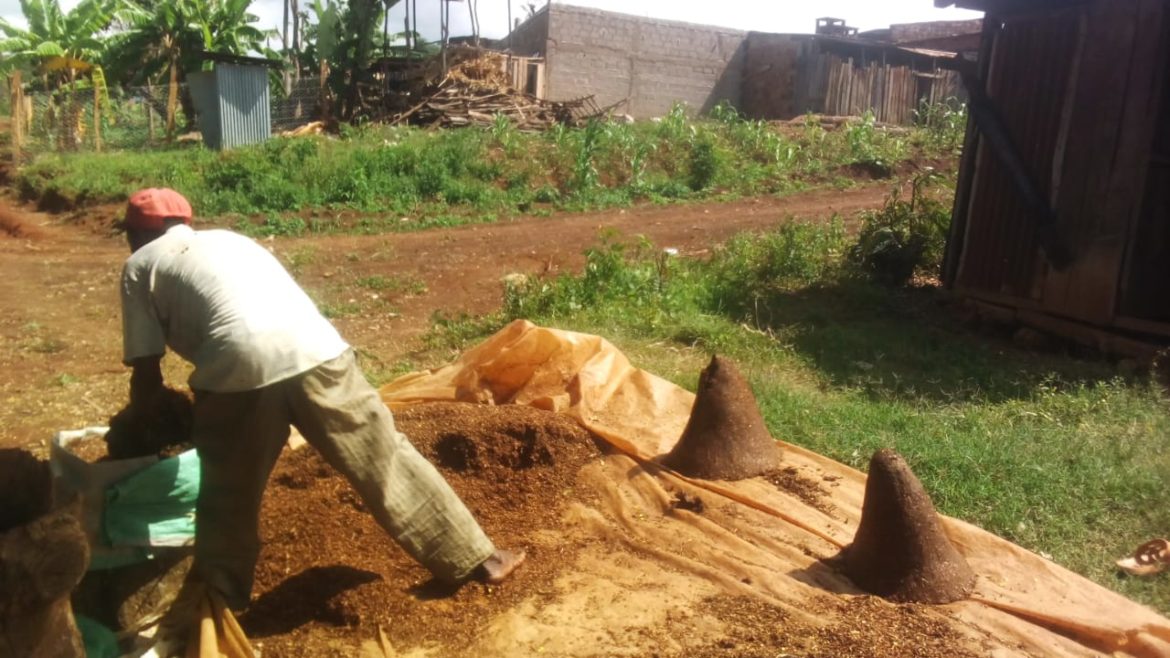
By Mashariki Correspondent
Even as the tobacco industry mourns the death of Mastermind Tobacco boss Wilfred Murungi, local dealers are minting money from the sale of ‘Kiraiku’, or rolled tobacco.
The smoking, sniffing and chewing of pounded tobacco leaves is an age-old practice in many parts of Tharaka Nithi, Meru and other counties.
In the distant past tobacco farmers in Tharaka Nithi and Meru raked in millions from sale of tobacco to Mastermind Tobacco, due to the good prices Mr Murungi offered them.
Murungi played a key role in expanding the tobacco market a situation that impacted positively to the farmers of meru region and other parts of the country.
But though tobacco farming went into a slump, there are still farmers and dealers making good sales from kiraiku.
Mr Lawrence Njeru, a kiraiku dealer at Mitheru is one of those who have made a decent living from kiraiku sales and he says there is high demand for kiraiku.
In fact he makes frequent trips to Marsabit where he has set up base as the Borana, Somali and other communities in that county love tobacco, as opposed to cigarettes.
Njeru says he had a tobacco farm but he had to shift to selling it instead, as he could not work on the farm and sell it to the countless consumers in the region.
He sells an average of 10, 000 kilograms of it per year, mainly in the North Horr area of Marsabit.
The process of making kiraiku from tobacco leaves is not as complicated as some would think.
“Since I am no longer a tobacco farmer I usually buy tobacco and take it through some processes. I put the tobacco leaves into a wooden, rounded container and pound it. Usually I use a little water. The nxt step is to put it out to dry completely,” said Mr Njeru.
He says the product then packed into small bags which he ferries to various markets, but mainly Marsabit.
“I sell the bag at sh20 each,” Njeru said. But Njeru says the kiraiku which is sniffed undergoes through a slightly different process.
The tobacco leaves are boiled in a mixture of water and cooking fat.
For five kilograms of tobacco, two litres of water are used.
“The fat is to ensure that the tobacco produces a somewhat thick paste,” he said.Once it is completely dry one is able to roll it in a newspaper cutting and smoke.
But the kiraiku which is smoked does not undergo many processes.
Njeru says the tobacco leaves are dried, cut into small pieces and dried.
“Once dry it is easy to roll it into a piece of paper and light (smoke) right away!” he said.
Njeru said from his 15 years experience in selling kiraiku he has built a stone house and bought two parcels of land for sh500, 000 and the other for sh300, 000.
He says many people prefer kiraiku to ‘modern’ cigarettes because of the ‘original flavour’ and the affordability.
However, currently the tobacco farmers are a very happy lot, they are complaining of poor market trends, lack of roads and other infrastructure in tobacco growing zones and land of good and effective government policy to support the tobacco famers as it is the case of tea and maize.




